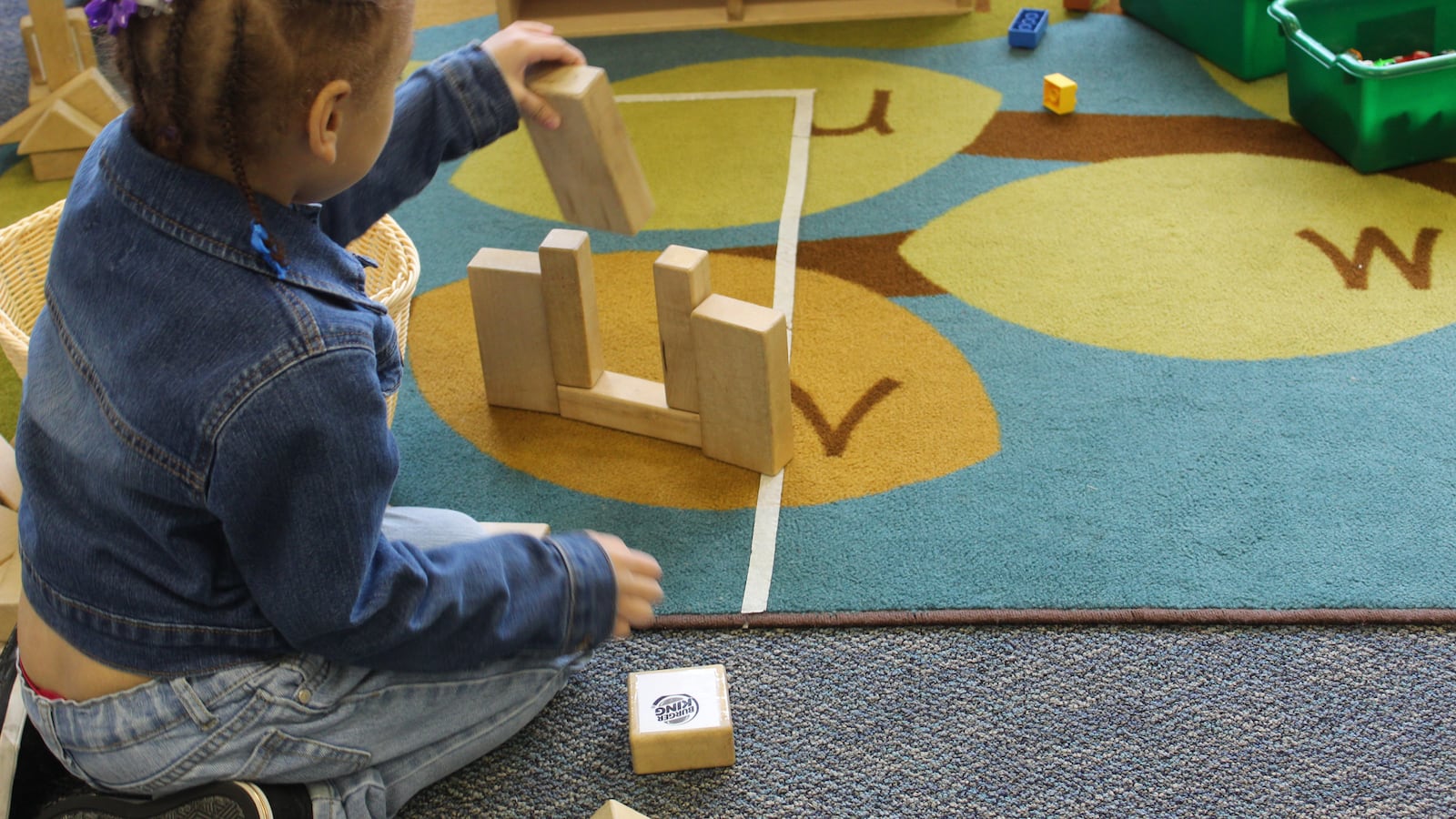Update: Illinois said Monday it will extend public funding for day cares and child care centers even if attendance drops or if closures occur. Read more in our live blog.
After closing K-12 schools, Illinois Gov. J.B. Pritzker has ordered restaurants and bars to close from Monday evening.
But so far, he’s leaving open state-funded day care and child care. Officials say that’s because first responders, nurses and hospital workers, and other emergency personnel need childcare so they can go to work.
But center directors say they are in a predicament. To stay safe from the highly contagious new coronavirus, they need basic supplies like bleach and sanitation wipes that now are hard to find. Many of them care for children of health care workers, cleaning crews, restaurant and personal-care workers — all potentially encountering the virus in their jobs.
Providers also want reassurance that the state will extend their funding even if they stay open and attendance drops, stressing the precarious situation of running an early learning business amid broad shifts in funding in Chicago.
“Nobody is mentioning us,” said Beata Skorusa, the founder and principal of the Montessori Foundation of Chicago, a center in the McKinley Park neighborhood on the city’s South Side. Meanwhile, she said, providers are borrowing basic cleaning supplies from each other since items have flown off shelves, and Amazon has delayed previously scheduled deliveries of some such items.
On Monday, nearly 150 providers across the state plan to deliver a letter to officials calling for funding extensions and other supports.
“Since the early childhood education and care industry is made up of mostly small to mid-size non-for-profit organizations and privately owned businesses, some of us are already beginning to feel the social and financial impact of the coronavirus,” the letter to the governor, mayor, and several other city and state officials reads. “In order to remain proactive, we are appealing to you, our government officials, to help ensure the health and safety of the children and families of Illinois and the solvency of the early childhood education and care industry during this crisis.”
The government isn’t providing enough information to make informed decisions, said Dana Garner, the director of the Chicago Commission of Site Administered Child Care Programs.
“It’s showing we are the foundation of the workforce,” Garner said of her member organizations. “But we need some clarity on some key issues so we can make informed decisions about whether we can stay open, or not.”
It also spotlights the tough position for officials who are balancing the need for tighter quarantines against keeping basic services open so that essential personnel can go to work.
The decision whether to stay open or not is excruciating, Skorusa said. “I have parents who are both police and they work the same shift. I have one who works at a nursing home, and the only person who can watch (the children) is grandma.” The possibility of endangering an older family member who would be most at risk of serious complications to COVID-19 weighs on her. So do other choices families might feel forced to make if day cares close and the only other option is one of the 18 open park district centers for emergency child care — a setting that is not ideal for a preschooler.
But it’s tough to balance the urge to protect staff with the strain of paying them if the state cuts funding. “How can I pay them and pay my mortgage?” Skorusa asked.

